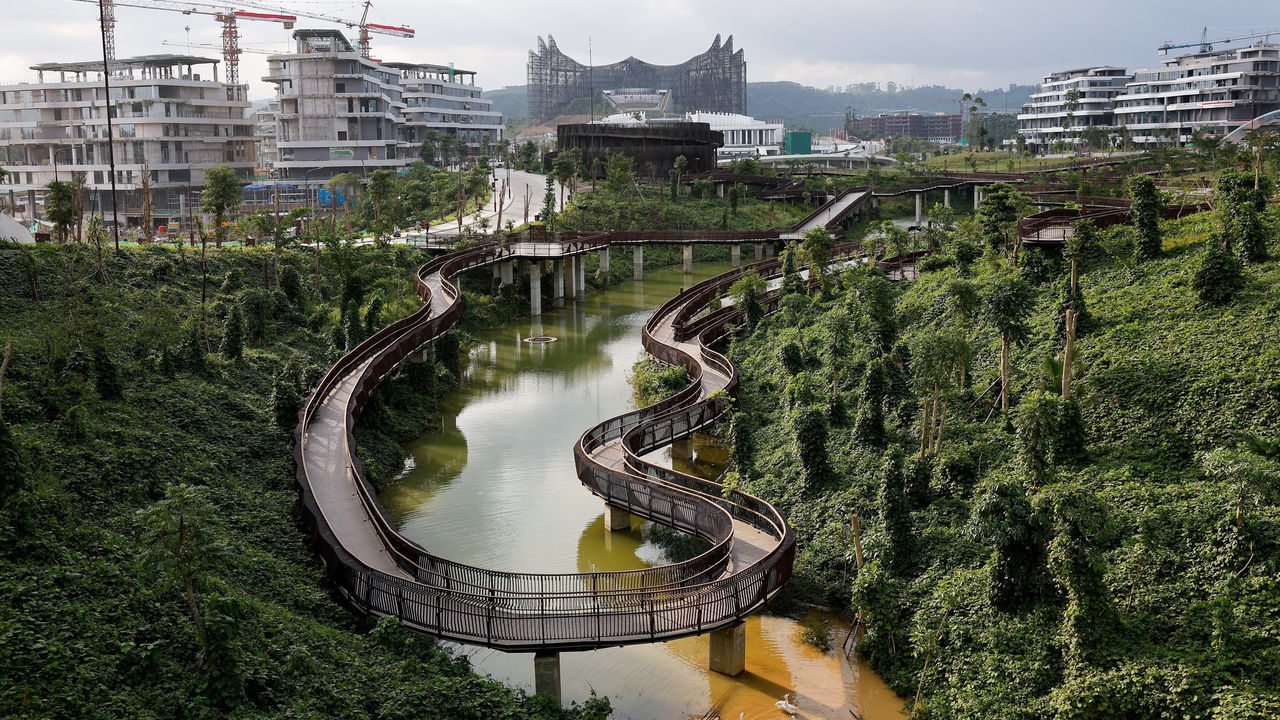Your browser does not support the
THE LEGACY of Joko Widodo (or Jokowi) was meant to be graft-free politics and an infrastructure revolution in Indonesia. On the face of it, the outgoing president has partially succeeded on the latter. During his decade in power, Jokowi’s government has overseen around 200 projects. The grandest was officially opened on August 17th, when Nusantara, an entirely new capital city carved out of the jungles of Borneo, hosted festivities to mark Indonesia’s 79th independence day. The ceremony highlighted two uncomfortable questions. One is whether Nusantara is an infrastructure leap too far: a giant vanity project doomed to fail. The other is whether Jokowi will really quit politics when his term ends in October and he is supposed to hand over power to Prabowo Subianto.
Jokowi sees the move of the country’s capital as a key part of his legacy. When completed in 2045, Nusantara will mark Indonesia’s transformation into a developed country, according to boosterish announcements by the planning authority. But Jokowi’s project is not going to plan. The president had to delay his move to a new palace for the last few weeks of his formal rule because of snafus with electricity and running water. Construction has been marred by problems with land acquisition, financing and management.
Jakarta, the current capital, is under serious threat. According to an index compiled by Maplecroft, a consultancy, no big city worldwide faces more climate-related risks. Yet disaster in Jakarta does not mean triumph in Nusantara.
An obvious question is whether Indonesia’s next president will ditch the scheme. A more penetrating question to ask is whether he will have the power to. The presidential term of Mr Prabowo, a garrulous former general accused of war crimes and whose family has a sprawling business empire, starts in October.
Mr Prabowo is hardly an advertisement for a new era of Indonesian democracy. But look beyond his chequered résumé and it is also possible that there will not be a clean-cut transfer of power away from Jokowi, whose son will govern as vice-president. On August 12th Airlangga Hartarto resigned as head of Golkar, the oldest political party in the country. At a press conference he implied that he was forced to step down. During an emergency meeting on August 21st, party leaders appointed Bahlil Lahadalia, a Jokowi ally, as Golkar’s new chairman. Days earlier, Jokowi had appointed Mr Bahlil as his new energy minister as part of a cabinet reshuffle.
Parliament is also considering establishing a supreme advisory council. Some suspect it is designed to create a new office for Jokowi. Mr Prabawo has promised to “continue and, if possible, finish” Nusantara. Jokowi’s promise appears to be to continue, if possible, holding some sway in Indonesia’s politics. ■
